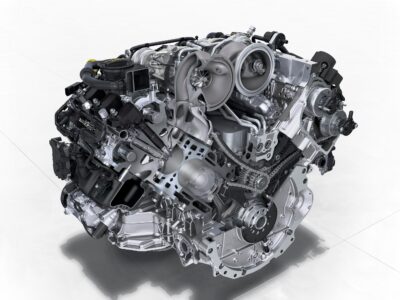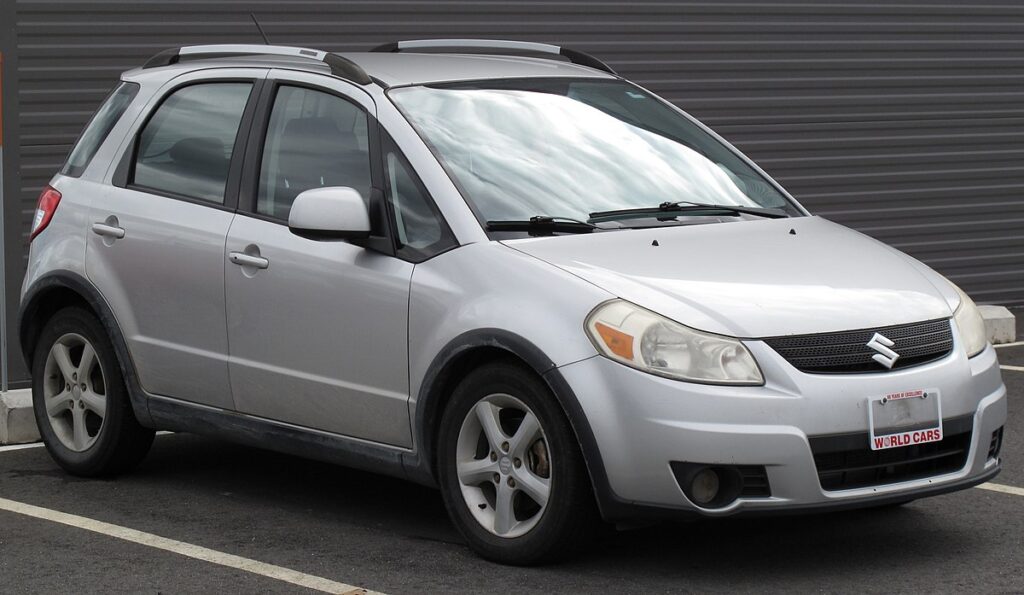
Suzuki SX4 Real-World MPG & Fuel Economy (2007–2014)

When it comes to understanding real-world fuel efficiency, few vehicles have as much verified community data as the Suzuki SX4. Over 245 owners have collectively logged more than 5.2 million miles, providing one of the most accurate insights into how this compact crossover and hatchback performs across its production years.
Below, we break down average MPG data year by year, analyze fuel economy trends, and reveal what drivers can realistically expect from their SX4s.
- 🧭 Overview of Suzuki SX4 Fuel Efficiency
- 📊 Suzuki SX4 Real-World MPG by Model Year
- 🚗 Year-by-Year Fuel Economy Insights
- ⚙️ Engine and Drivetrain Influence on MPG
- 🛣️ Highway vs City Performance
- 🧰 Factors Affecting SX4 Fuel Economy
- 🌍 Environmental Efficiency and Emissions
- 🧾 Real-World Fuel Cost Estimates
- 🔧 Recommended Maintenance for Optimal MPG
- 🏁 Final Thoughts
🧭 Overview of Suzuki SX4 Fuel Efficiency
The Suzuki SX4 was produced between 2007 and 2014, available as both a compact crossover and a hatchback/sedan. While official EPA figures were optimistic, real-world results from thousands of fill-ups paint a more reliable picture.
- Total vehicles tracked: 245
- Total fuel-ups recorded: 22,000+
- Total miles tracked: 5,200,000+
- Average real-world MPG: ~25.8 MPG combined
This consistent mid-20s performance showcases the SX4 as a dependable, moderately efficient vehicle, particularly for its AWD capability and manual transmission options.
📊 Suzuki SX4 Real-World MPG by Model Year
| Model Year | Avg MPG | Vehicles Tracked | Fuel-Ups | Miles Logged |
|---|---|---|---|---|
| 2014 | 20.7 | 2 | 163 | 34,398 |
| 2013 | 25.0 | 15 | 1,826 | 442,441 |
| 2012 | 26.3 | 26 | 3,486 | 786,772 |
| 2011 | 27.3 | 42 | 3,623 | 922,268 |
| 2010 | 26.0 | 38 | 2,746 | 629,931 |
| 2009 | 25.7 | 38 | 4,916 | 1,094,153 |
| 2008 | 25.6 | 51 | 3,459 | 843,922 |
| 2007 | 24.6 | 33 | 2,189 | 470,969 |
🚗 Year-by-Year Fuel Economy Insights
2007 Suzuki SX4 (24.6 MPG)
The debut model year offered either front-wheel or all-wheel drive. Owners reported slightly lower MPG due to its heavier AWD system and the early 2.0L J20A engine tuning.
2008–2009 Suzuki SX4 (25.6–25.7 MPG)
Incremental improvements in fuel management and drivetrain calibration led to minor MPG gains. Still, these models retained a reputation for being more rugged than economical, especially in city driving.
You may be interested in reading Suzuki SX4 Top Speed: Complete Performance Guide (2006–2012)
Suzuki SX4 Top Speed: Complete Performance Guide (2006–2012)2010–2011 Suzuki SX4 (26.0–27.3 MPG)
Fuel economy peaked in 2011, the most efficient year on record. Suzuki refined engine mapping and reduced drivetrain friction losses, resulting in a genuine 27+ MPG average in mixed driving.
2012–2013 Suzuki SX4 (26.3–25.0 MPG)
Despite similar mechanical specifications, a gradual decrease in efficiency appeared—likely due to aging vehicle fleets and automatic transmissions dominating sales.
2014 Suzuki SX4 (20.7 MPG)
The final production year shows a sharp drop, but this is based on only two vehicles tracked, making it statistically less representative. Nonetheless, it suggests fewer owners prioritized economy in the final model run.
⚙️ Engine and Drivetrain Influence on MPG
The 2.0-liter inline-four (J20B) engine powered most SX4s. Here’s how its configuration impacted real-world economy:
| Configuration | Transmission | Drivetrain | Typical MPG Range |
|---|---|---|---|
| 2.0L Manual | FWD | 27–30 MPG | |
| 2.0L Manual | AWD | 24–26 MPG | |
| 2.0L Automatic | FWD | 25–27 MPG | |
| 2.0L Automatic | AWD | 22–25 MPG |
Manual FWD versions consistently outperform automatics, especially in highway driving where the lightweight chassis and aerodynamic body provide surprising efficiency.
🛣️ Highway vs City Performance
In real-world tracking, the Suzuki SX4 performs best on open roads, maintaining between 30–32 MPG at highway speeds with light loads.
However, urban stop-and-go conditions can bring that number down to 20–22 MPG, particularly for AWD models.
 Suzuki SX4 Top Speed: Complete Performance Guide (2006–2012)
Suzuki SX4 Top Speed: Complete Performance Guide (2006–2012) Nissan Xterra MPG & Fuel Economy by Model Year (2000-2015)
Nissan Xterra MPG & Fuel Economy by Model Year (2000-2015)Owners who maintain steady throttle input and avoid excessive idling often see significant gains.
🧰 Factors Affecting SX4 Fuel Economy
- Tire pressure – Underinflation can reduce MPG by 2–3 points.
- AWD usage – Engaging AWD unnecessarily can cost 1–2 MPG.
- Air filters and spark plugs – Dirty components restrict air/fuel efficiency.
- Driving style – Aggressive acceleration is the single biggest MPG killer.
- Synthetic oil – Switching to 0W-20 or 5W-20 synthetic often yields a 1 MPG improvement.
🌍 Environmental Efficiency and Emissions
With CO₂ emissions averaging ~330 g/mile, the SX4 performs comparably to rivals like the Honda Fit and Subaru Impreza of its era. Its ULEV-certified engine ensures acceptable emissions standards even today, making it a viable used-car choice for eco-conscious drivers.
🧾 Real-World Fuel Cost Estimates
| Annual Mileage | Avg MPG (Overall 25.8) | Fuel Price ($3.80/gal) | Annual Fuel Cost |
|---|---|---|---|
| 10,000 miles | 25.8 | $3.80 | ~$1,473 |
| 12,000 miles | 25.8 | $3.80 | ~$1,768 |
| 15,000 miles | 25.8 | $3.80 | ~$2,210 |
The SX4 remains an affordable commuter, especially considering its low maintenance costs and strong reliability record.
🔧 Recommended Maintenance for Optimal MPG
To sustain top fuel efficiency, we recommend:
- Regular oil changes every 5,000–7,000 miles
- Tire rotations every 6,000 miles
- Use of OEM air filters and NGK spark plugs
- Occasional fuel injector cleaner every 15,000 miles
These small steps can keep MPG figures near the upper 20s consistently.
🏁 Final Thoughts
The Suzuki SX4 delivers reliable, moderate fuel economy backed by real-world owner data—not just lab estimates.
Its balance between efficiency, AWD traction, and compact practicality makes it a smart used-car choice for drivers seeking a dependable and affordable daily commuter.
 Suzuki SX4 Top Speed: Complete Performance Guide (2006–2012)
Suzuki SX4 Top Speed: Complete Performance Guide (2006–2012) Nissan Xterra MPG & Fuel Economy by Model Year (2000-2015)
Nissan Xterra MPG & Fuel Economy by Model Year (2000-2015) Nissan Xterra Towing Capacity: Complete Breakdown by Year and Configuration
Nissan Xterra Towing Capacity: Complete Breakdown by Year and ConfigurationWhile the SX4 may not top modern hybrids in fuel economy, its simplicity, solid engineering, and proven track record over millions of miles cement its place as one of Suzuki’s most enduring vehicles.
If you want to know other articles similar to Suzuki SX4 Real-World MPG & Fuel Economy (2007–2014) you can visit the category Blog.
Leave a Reply






More content of your interest